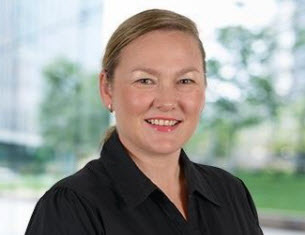Registered Project Manager

Overview
Are you considering becoming a Registered Project Manager?
There are many benefits to doing so, including obtaining recognition for your skills, obtaining a competitive edge in your career, personal and professional development, improving your own skills and capability, opening up a new career path, and to be included in the Register of Project Managers on the AIPM website.
At Glass Rock Solutions, we devise and deliver training solutions to corporate, government agencies, public sectors, multinational organisations and private individuals.
We offer both in-house and online training. We now offer Registered Project Management in line with RegPM – the Australian Institute of Project Management’s certification program. It is developed through AIPM’s own Competency Standards, which are widely recognised by industry as a best practice model for project, program and portfolio management, in both the private and public sectors.
It involves an individually designed competency-based workplace assessment program. Applicants are required to compile evidence that displays their competence in project management. It can be awarded at one of five levels:
- Certified Practicing Project Practitioner (CPPP)
- Certified Practicing Project Manager (CPPM)
- Certified Practicing Senior Project Manager (CPSPM)
- Certified Practicing Project Director (CPPD)
- Certified Practicing Portfolio Executive (CPPE)
Certification and Assessment
If you would like to become an AIPM certified project manager, you must become a member of AIPM first, as credentials are awarded only to members. Once you are certified, your certification is valid for three years – and to keep your certification current you need to undertake continuous professional development (CPD) to accrue 70 CPD points.
If you have sufficient CPD points after three years, are a financial member and have paid a renewal fee, your certification is automatically renewed for another three years.
During the assessment you will need to provide workplace based evidence across nine competency areas as proof that you can apply project management knowledge at a certain level in your workplace. The assessor will walk you through the process and explain what is and what is not acceptable as workplace evidence.
Assessment outcomes are either ‘competent’ or ‘not yet competent’. If the outcome is ‘not yet competent’, the assessor will be able to show you an individual development pathway for how to become ‘competent’.
Contact Glass Rock Solutions for more information about this process and how to get started.
Book now
Please fill out the form below and someone from our team will be in touch within the next 48 hours to get your training started.
GLASS ROCK CLIENT TESTIMONIALS
GLASS ROCK CLIENT STORIES
WE ARE HERE TO HELP
CONTACT US TO FIND OUT HOW
Melbourne Office
Level 23, Collins Square Tower 5
727 Collins Street,
Melbourne Victoria 3008
Sydney Office
Australia Square, Level 33
264 George Street,
Sydney NSW 2000
We acknowledge the First Australians as the traditional custodians of this continent. We pay our respect to the elders of the community, past, present and future.



